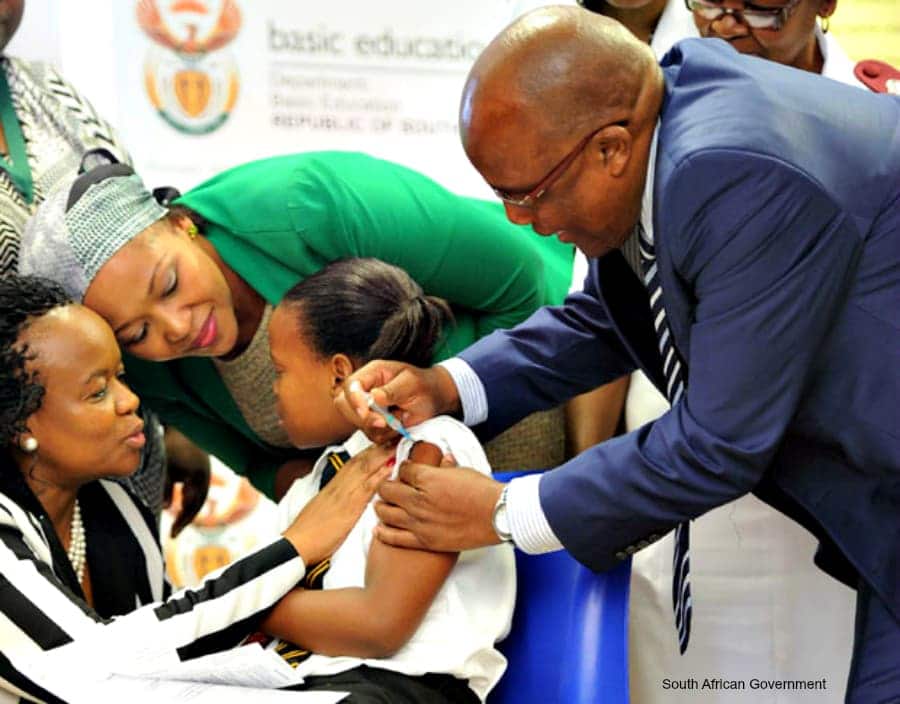Change is pain
Changing people’s sexual behaviour – crucial to prevent the spread of HIV/AIDS – is a complicated process. But many South African behaviour-change interventions are not based on theory and seem to assume that people will change if they are given the “right” information.
This is according to Heidi van Rooyen, a psychologist based at the HSRC and who is involved in a community-based voluntary counselling and testing programme in Vulindlela in the KwaZulu-Natal Midlands.
“We are often guilty of responding to funding proposals rather than developing interventions that are based on behaviour change theories,” said Van Rooyen, who was addressing a meeting in Durban this week.
She said theory was important as it attempted to identify and understand what caused certain behaviour, but warned that many behaviour change theories were not developed to address HIV/AIDS.
A number of theories focused on inter-personal relationships, the intimate one-on-one relationships, without taking into account the institutions and communities in which these relationships were taking place, she said.
These included the “health belief model”, the “theory of reasoned action” and the “stages of change” theories.
These tended to assume to a greater or lesser degree that people were rational and logical, and that they had the resources, support and confidence to make the changes that were necessary in their lives.
Such approaches tended to be individualistic, and ignored societal and cultural norms, as well as religious and gender constraints. They also ignored the “complexity of sexuality and human behaviour” and people’s “tendency to underplay the possibility that they are at risk”.
“Sometimes the messengers are also the problem. Counsellors tell their clients that they must talk to their partners about using condoms, or being faithful and so on. Yet many of the counsellors themselves are unable to do these things in their own lives, and people sense this so it undermines their message,” said Van Rooyen.
For Van Rooyen, a possible way forward lies in addressing the cultures and contexts in which relationships take place.
Three theories were valuable in this regard: the “PEN-3 model”, the “diffusion of innovation theory” and the “ecological health behaviour model”.
All three were based on accepting that people’s behaviour was influenced by the contexts in which they took place.
The PEN-3 model proposes that a range of things collectively influence people’s behaviour, including their families and neighbourhoods, and identified that culture could have both positive and negative effects.
The “diffusion of innovation” theory is based on getting community leaders to act as agents of change, and influence community members.
“So often, community leaders are brought in at the end to give their endorsement to something that has already been worked out. But it is important to get them to buy into something from the start,” said Van Rooyen. “Genuine community participation is possible and not necessarily expensive.”
According to the “ecological health behaviour model”, people “accumulate disadvantage” based on things such as gender, education levels and where they live. These disadvantages need to be addressed in order to create an “enabling environment” for behaviour change.
“The organisation Cadre has developed a context-specific model through its work in communities in the Eastern Cape,” said Van Rooyen.
“They highlighted the enabling and disabling aspects of the context. By solving a number of small problems which they had identified as obstacles to health protective behaviour, they were able to create an enabling environment for change.”
In Khayelitsha in Cape Town, in Lusikisiki in the Eastern Cape and in Vulindlela, a community-based approach to addressing HIV/AIDS seems to be paying off.
The stigma and silence surrounding the disease is breaking down and people are more willing to admit that they are at risk of HIV, and to start to address the effects of the virus in their communities.
However, these communities are a drop in the ocean. Many interventions simply pay lip service to “community mobilisation” while assuming that information pamphlets are the best way to prevent HIV/AIDS.
E-mail Kerry Cullinan
Author

Kerry Cullinan is the Managing Editor at Health-e News Service. Follow her on Twitter @kerrycullinan11
Republish this article
This work is licensed under a Creative Commons Attribution-NoDerivatives 4.0 International License.
Unless otherwise noted, you can republish our articles for free under a Creative Commons license. Here’s what you need to know:
You have to credit Health-e News. In the byline, we prefer “Author Name, Publication.” At the top of the text of your story, include a line that reads: “This story was originally published by Health-e News.” You must link the word “Health-e News” to the original URL of the story.
You must include all of the links from our story, including our newsletter sign up link.
If you use canonical metadata, please use the Health-e News URL. For more information about canonical metadata, click here.
You can’t edit our material, except to reflect relative changes in time, location and editorial style. (For example, “yesterday” can be changed to “last week”)
You have no rights to sell, license, syndicate, or otherwise represent yourself as the authorized owner of our material to any third parties. This means that you cannot actively publish or submit our work for syndication to third party platforms or apps like Apple News or Google News. Health-e News understands that publishers cannot fully control when certain third parties automatically summarise or crawl content from publishers’ own sites.
You can’t republish our material wholesale, or automatically; you need to select stories to be republished individually.
If you share republished stories on social media, we’d appreciate being tagged in your posts. You can find us on Twitter @HealthENews, Instagram @healthenews, and Facebook Health-e News Service.
You can grab HTML code for our stories easily. Click on the Creative Commons logo on our stories. You’ll find it with the other share buttons.
If you have any other questions, contact info@health-e.org.za.
Change is pain
by Kerry Cullinan, Health-e News
May 27, 2004



